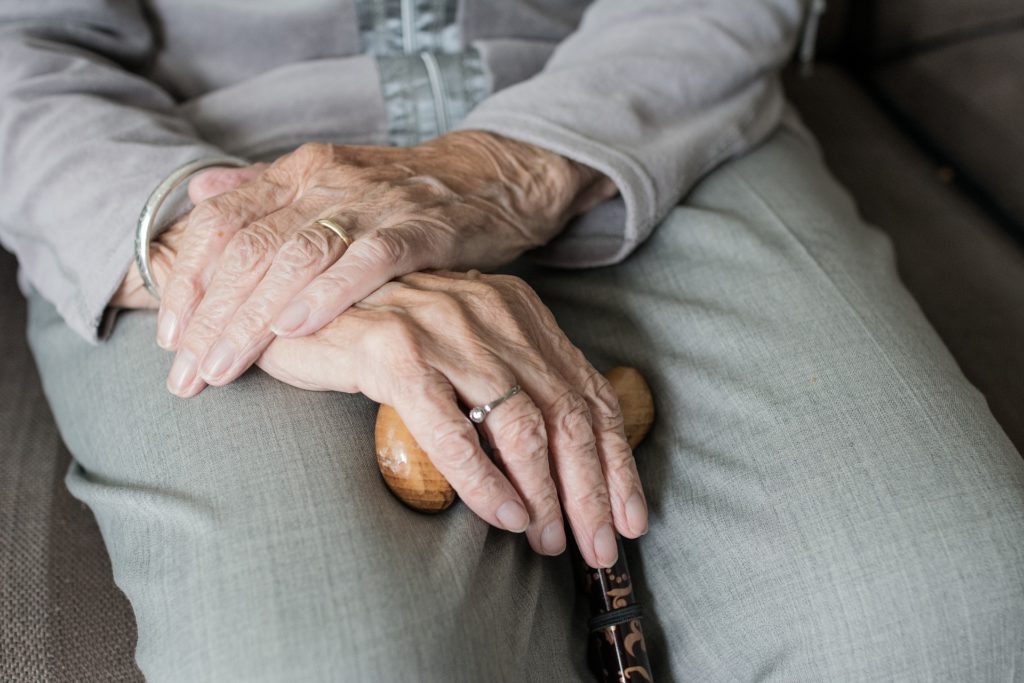Nursing Home Lawsuit: Nursing Home Injuries Happen More Often Than You Think


Nursing Home Lawsuit? Injuries and Abuse at Nursing Home Is Far Too Common. Here's What You Need To Know.
Whether you’re a resident in a nursing home or your loved one is the resident, you want a high standard of care.
But, when harm, injury, or death befalls a patient due to negligence, what are your options?
In cases like these, a lawsuit can help. But it is a last resort.
Settling a nursing home is often the better option. It avvoid the cost, and time delay of Court. It also help avoid having to relive what may have been terrible experiences when your loved one was injured in a nursing home.
Not only can nursing home lawsuit cases provide monetary recompense, but it can also drive positive change in the facility itself.
Abuse is Far Too Common
Did you know 90% of nursing home residents report that they have experienced neglect?
Negligence in nursing homes is actually quite common, and if you don’t have the proper information ahead of time, it can be difficult to know what to do.
Many for-profit nursing homes protect themselves from regulations through subsidiaries. This doesn’t mean that negligence shouldn’t be reported, or that lawsuits shouldn’t be filed.
But, before going down that road, it’s important to understand what these unique types of nursing home cases entail.
This guide will show you not only what nursing home negligence is, but also how it can be proven and the results you might expect.
Keep reading to understand nursing home abuse cases.


Types of Nursing Home Lawsuit Cases
Before getting into the specifics of these types of cases, it’s important to understand that they can follow two paths.
Those paths are medical malpractice or personal injury.
Here are the subtle differences between the two:
- Personal injury is physical harm inflicted on a person’s body. It excludes property or reputation damage. It covers a broad array of examples including accidents
- Medical malpractice involves professional negligence. The negligence must be committed by a health care provider. The treatment they give must be substandard, and it must lead to harm, injury, or death of a patient.
Of the two, medical malpractice is more difficult to prove. It’s also where most nursing home lawsuit cases tend to fall if negligence is involved.
Types of Negligence
There are many different types of negligence that can be proven in a medical malpractice case. Each of these can lead to physical harm or injury, or even death.
The types of negligence most often seen in nursing homes include:
1. Healthcare providers giving improper hygienic, medical, or nutritional care to patients.
This includes failing to keep patients clean. It includes failing to provide a balanced diet. It also encompasses a failure to administer medication as directed.
2. Healthcare providers ignore nursing home residents.
An example of this type of negligence might include leaving patients in beds so long that they get bed sores.
3. Healthcare providers and facilities failing to provide safe premises.
Everything from wet floors that cause slips and falls to physical assaults from other residents can fall into this category.
4. Healthcare managers failing to train and supervise their employees.
Improper training leads employees to commit acts of negligence without knowing it. Even if they are unaware, the facility may still be responsible. Facilities that fail to surveil employees miss opportunities to prevent negligence.
Many facilities are bound to adhere to a standard of care set by Medicare. Failing to follow these standards can constitute negligence.
Proving Neglect
The burden of proving neglect in nursing home lawsuit cases falls on the plaintiff’s shoulders.
This is often the most difficult part of the case, but, with proper advice, these cases can be won.
There are two main ways a plaintiff can prove negligence:
- The act of neglect can be shown to have directly led to harm, injury, or death
- Expert testimony can add weight to the plaintiff’s claims.
The defendant, (the nursing home facility) will attempt to create doubt as to their responsibility should the case go to trial.
What to Expect
Rather than tackle nursing home lawsuit cases alone, many victims seek the aid of the legal representation.
With this kind of help, plaintiffs have an expert in their corner and can hope to obtain compensation in four different ways.
Medical Expenses
If a resident needs medical attention as a result of negligence in the nursing home, medical expenses may be reimbursed.
This may happen in or out of court. Because of this, any bills incurred by the patient should be saved, whether or not the patient has already paid them.
Pain and Suffering
Nursing home residents who have been victims of negligence may receive money for pain and suffering. This may be rewarded either in or out of court. This type of compensation is for physical distress only.
The amount paid can vary on a case-by-case basis and is separate from medical expenses. Plaintiffs might receive both, as well as other types of compensation.
Emotional Distress
Emotional suffering is different from physical suffering and often, can last a lot longer.
Plaintiffs who have suffered from negligence might be offered this type of compensation in addition to other types, or on its own.
Because emotions are intangible, this is one type of compensation that might be increased with expert testimony.
Punitive Damages
Punitive damages are usually awarded by a judge and are intended to punish the defendant if the plaintiff should win the lawsuit. You have to plead them in your Complaint and they are usually only awarded if there is a law which allows them or if you can prove intentional or willful and wanton conduct, not just negligence.
Why would a judge want to assess punitive damages?
Because sometimes it takes a serious financial hit for a badly run nursing home to change its ways.
If the nursing home facility has to pay extra compensation, it has reason to correct its policies in the future. This, in turn, can lead to a healthier environment for residents.
Precisely how much money a plaintiff can expect from a lawsuit, depends on the case, the evidence, the nursing home facility in question, and other competing factors.
In this, as in all nursing home lawsuit cases, expert legal representation will be able to offer more specific expectations.
Getting Help
Nursing home lawsuits can seem daunting, which is why many choose to seek the assistance of a legal firm.
Choosing the right firm- one you can trust that has experience in nursing home negligence and abuse cases – is absolutely crucial.
We offer a free case consult. Here's how that works:
- 100% free.
- I answer your questions.
- You tell me what happened.
- I give you my plan.
- You hire me if you want. Or Not.
- Either way, we part as friends and you have some answers and peace of mind.
"Hiring Scott was one of the best moves I have made in my life....5 star first class act who really knows his stuff."


Call Now.
Got any questions or looking for some legal advice? Reach out and talk to us.
We’re always happy to help.



